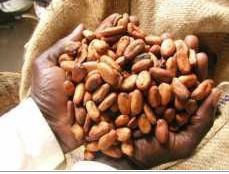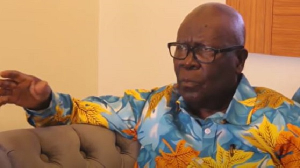Mr Frank M. Bednar, Deputy Managing Director of the West African Mills Company Limited (WAMCO), has said with cleaning, inspection, restoration and maintenance work almost complete, the company could start production anytime from now.
“We have submitted a request to the authorities to do a test run on the various sectors of production…we can receive cocoa beans anytime from now to help in our three months production trial phase”.
The Managing Director of the WAMCO said this when he welcomed the Member of Parliament for Takoradi, Mr Kobby Okyere-Darko to the factory for an inspection tour to assess the current state of the machines after three years of an abrupt shutdown due to the lack of beans to aid in production.
Mr Bednar expressed happiness with government’s effort to revive WAMCO which serves as one of the key economic pillars within the Sekondi/Takoradi and its environs, adding that hard work had gone into repairing all exposed parts and that “we are confident and welcome the come-backgh”.
"Already, ten technical and other 20 staff had been engaged to work and repair all exposed parts during these period of dormancy and prayed that the intervention by COCOBOD would be permanent to curtail unemployment and restore hope to the many affected households who depend on WAMCO for survival".
According to the Deputy Managing Director, production would be started with the liquor plant before moving on to the expeller which can produce sub-standard beans into quality products.
The WAMCO which is a Free Zone enterprise has three main factories, WAMCO one, which is a hydraulic press plant, Expeller plant and the Cocoa Liquor Plant situated at the Effia industrial area.
It was established in 1947 by Gill and Dufus of London and in 1963, the Cocoa Marketing Board now COCOBOD acquired 51 per cent shares on behalf of the government later in September 1982, Gill and Dufus handed over their 49 per cent shares to COCOBOD.
But under the Government’s Divestiture and Privatisation programme, the company become totally private limited by shares in August 1992 and then in 1993, the company took over a second factory, the cocoa processing company limited.
Mr Kobby Okyere-Darko said understanding the issues of WAMCO was as critical as finding lasting solution to the situation.
To the MP, WAMCO was a great economic enabler in the Region in Particular due to the economic benefits and stability it’s brought to many homes.
Mr Okyere-Darko said the government through the COCOBOD would ensure that WAMCO was revived to restore economic hope and this is key to personal and national growth.
Mr Albert Ababio, Western Regional Manager of the Association of Ghana Industries (AGI), expressed gratitude to government for working assiduously to get WAMCO and other collapsed factories back on their feet to create job opportunities for the youth.
In the Western Region, Bonsa Tyre factory, Aboso Glass factory, the Railway and WAMCO have been the catalyst for the energetic and once vibrant economic lifestyle of the people and it is rather unfortunate that these assets have been abandoned and given room for the soaring unemployment figures.
Mr Ababio was also happy that the Ministry of Trade was planning a stimulus package to help the company mitigate its challenges.
Business News of Thursday, 24 August 2017
Source: ghananewsagency.org
We can resume cocoa production anytime - Deputy WAMCO Manager
 File photo
File photo
















